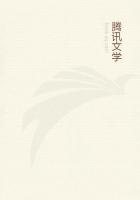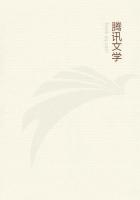Very true, I said. But I want to know against what do you say that the courageous are ready to go-against dangers, believing them to be dangers, or not against dangers?
No, said he; the former case has been proved by you in the previous argument to be impossible.
That, again, I replied, is quite true. And if this has been rightly proven, then no one goes to meet what he thinks to be dangers, since the want of self-control, which makes men rush into dangers, has been shown to be ignorance.
He assented.
And yet the courageous man and the coward alike go to meet that about which they are confident; so that, in this point of view, the cowardly and the courageous go to meet the same things.
And yet, Socrates, said Protagoras, that to which the coward goes is the opposite of that to which the courageous goes; the one, for example, is ready to go to battle, and the other is not ready.
And is going to battle honourable or disgraceful? I said.
Honourable, he replied.
And if honourable, then already admitted by us to be good; for all honourable actions we have admitted to be good.
That is true; and to that opinion I shall always adhere.
True, I said. But which of the two are they who, as you say, are unwilling to go to war, which is a good and honourable thing?
The cowards, he replied.
And what is good and honourable, I said, is also pleasant?
It has certainly been acknowledged to be so, he replied.
And do the cowards knowingly refuse to go to the nobler, and pleasanter, and better?
The admission of that, he replied, would belie our former admissions.
But does not the courageous man also go to meet the better, and pleasanter, and nobler?
That must be admitted.
And the courageous man has no base fear or base confidence?
True, he replied.
And if not base, then honourable?
He admitted this.
And if honourable, then good?
Yes.
But the fear and confidence of the coward or foolhardy or madman, on the contrary, are base?
He assented.
And these base fears and confidences originate in ignorance and uninstructedness?
True, he said.
Then as to the motive from which the cowards act, do you call it cowardice or courage?
I should say cowardice, he replied.
And have they not been shown to be cowards through their ignorance of dangers?
Assuredly, he said.
And because of that ignorance they are cowards?
He assented.
And the reason why they are cowards is admitted by you to be cowardice?
He again assented.
Then the ignorance of what is and is not dangerous is cowardice?
He nodded assent.
But surely courage, I said, is opposed to cowardice?
Yes.
Then the wisdom which knows what are and are not dangers is opposed to the ignorance of them?
To that again he nodded assent.
And the ignorance of them is cowardice?
To that he very reluctantly nodded assent.
And the knowledge of that which is and is not dangerous is courage, and is opposed to the ignorance of these things?
At this point he would no longer nod assent, but was silent.
And why, I said, do you neither assent nor dissent, Protagoras?
Finish the argument by yourself, he said.
I only want to ask one more question, I said. I want to know whether you still think that there are men who are most ignorant and yet most courageous?
You seem to have a great ambition to make me answer, Socrates, and therefore I will gratify you, and say, that this appears to me to be impossible consistently with the argument.
My only object, I said, in continuing the discussion, has been the desire to ascertain the nature and relations of virtue; for if this were clear, I am very sure that the other controversy which has been carried on at great length by both of us-you affirming and I denying that virtue can be taught-would also become clear. The result of our discussion appears to me to be singular. For if the argument had a human voice, that voice would be heard laughing at us and saying:
"Protagoras and Socrates, you are strange beings; there are you, Socrates, who were saying that virtue cannot be taught, contradicting yourself now by your attempt to prove that all things are knowledge, including justice, and temperance, and courage,-which tends to show that virtue can certainly be taught; for if virtue were other than knowledge, as Protagoras attempted to prove, then clearly virtue cannot be taught; but if virtue is entirely knowledge, as you are seeking to show, then I cannot but suppose that virtue is capable of being taught. Protagoras, on the other hand, who started by saying that it might be taught, is now eager to prove it to be anything rather than knowledge; and if this is true, it must be quite incapable of being taught." Now I, Protagoras, perceiving this terrible confusion of our ideas, have a great desire that they should be cleared up. And I should like to carry on the discussion until we ascertain what virtue is, whether capable of being taught or not, lest haply Epimetheus should trip us up and deceive us in the argument, as he forgot us in the story; I prefer your Prometheus to your Epimetheus, for of him I make use, whenever I am busy about these questions, in Promethean care of my own life. And if you have no objection, as I said at first, I should like to have your help in the enquiry.
Protagoras replied: Socrates, I am not of a base nature, and I am the last man in the world to be envious. I cannot but applaud your energy and your conduct of an argument. As I have often said, I admire you above all men whom I know, and far above all men of your age;and I believe that you will become very eminent in philosophy. Let us come back to the subject at some future time; at present we had better turn to something else.
By all means, I said, if that is your wish; for I too ought long since to have kept the engagement of which I spoke before, and only tarried because I could not refuse the request of the noble Callias.
So the conversation ended, and we went our way.
-THE END-















